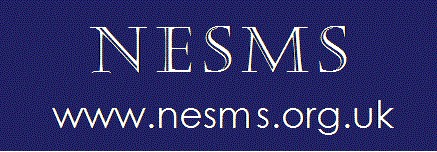click here

Cowdray Hall, Aberdeen
| To see other reviews of NESMS Concerts click here |
 |
| Musicians from The North East of Scotland Music School |
| Joseph Long, piano |
| 'Rush Hour' Concert |
|
Tuesday, 3 February 2015 Cowdray Hall, Aberdeen |
| Reviewed by Alan Cooper |
| There was a surprisingly gratifying turnout on a very wintery evening to hear Joseph Long play Beethoven's Waldstein Sonata No.21 in C Major, Op.53. Many of the "usual suspects" were in the audience. The idea behind these Rush Hour Concerts is particularly worthwhile. The concerts allow the spotlight to be trained on just one large work or related group of shorter works allowing for a spoken introduction to the music situating it within its historical context. Responses to the work from the same period or by famous musicians from later on provided valuable insights. Roger Williams mentioned that the German Romantic poet Goethe was a contemporary of Beethoven. The renowned musicologist Donald Francis Tovey wrote in his Companion to Beethoven's Pianoforte Sonatas that with the Waldstein, the composer was entering upon a new style of composition – "Crossing the Rubicon" as Tovey put it. |
| Roger's introduction went on to explain how new developments in the construction of pianos made possible new sounds and structures in the music itself. All this prepared us for Joseph Long's riveting and in many ways revealing performance of the Sonata. |
| The first movement, Allegro con brio opens with a sequence of pianissimo repeated chords to which the right hand responds with two little motifs at the top of the piano, the second being a kind of expanded twin of the first. Today's popular music composers might well call this a "riff" and like that recognisable musical signature this sequence recurs in different keys throughout the movement. It is far more than just the signal warning us that repeats or the recapitulation are about to begin. It is actually very difficult to play these repeated chords evenly and with clarity. I have heard performances where it sounds grumbly and indistinct. Today however it was beautifully clear and clean – a portent of the entire performance that was to follow. |
| Joseph also made the second thematic group sing out splendidly and he made the development section sound breathlessly exciting. Overall, in this movement, he paced the music in such a way that everything fell neatly into place and Beethoven's structuring of the movement seemed thoroughly logical. |
| The short slow movement that melted nicely into the finale was limpidly clear and seductively beautiful, making much more of an impact in this performance than is sometimes the case. In no sense did Joseph skate over this movement. |
| Joseph's playing brought out so much of the thematic and melodic content of the finale. For me, it brought to mind that old question of whether Beethoven's music represents the apex of the classical style or the birth of romanticism. Of course it is both, even though saying that is in a sense "to kick the can down the road". I thought however that especially in this final movement, Joseph was leaning more to the romantic side of Beethoven's musical personality. The final moments of both outer movements were wonderfully virtuosic but much more than that, thrillingly dramatic. You can get virtuosity in Mozart's Sonatas but never that same sense of drama – and for me – that was what was really new in this music. Of course the modern piano makes a lot of difference too. I wonder what Beethoven himself would have thought of today's performance. I suspect he would be wondering how he could get that piano back to his rooms in Vienna. |